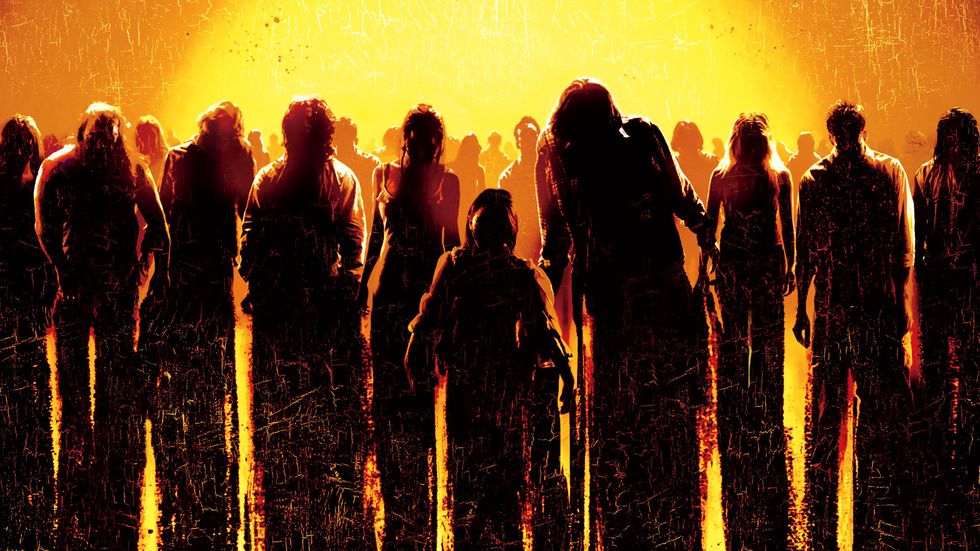Seeing as how Thanksgiving is quickly approaching, I can’t really imagine a more appropriate time to engage in intellectual discourse on the ostensible imminence of the zombie apocalypse.
Seriously, though. It’s not going to happen…right?
I feel like the conversation surrounding the concept of a zombie apocalypse has seriously slowed down over the past few years. The Walking Dead is just as popular as it’s ever been, but as The Walking Dead has incorporated more societal themes and used the background of a zombie apocalypse to portray colorful villains and attempt complex storytelling as opposed to the portrayal of a beautifully desolate zombie landscape and how potential survivors would sincerely attempt to survive in the new world as well as cope with the passing of a frivolous society, the series isn’t doing much to perpetuate the “zombie apocalypse” angle on survivalism. So, now that we aren’t wearing our horror-nerd goggles, can we briefly assess whether it ever was a possibility?
Zombies didn’t quite become an element of popular culture until the 20th century. The resurrection of the dead as a mindless roamer was only ever implemented as a result of the manipulation of the supernatural, and they didn’t quite adopt many of the elements of how we generally perceive zombies, today. The first piece of fiction to inspire the popular concept of a zombie was actually a 50’s vampire film known as The Last Man On Earth, a work based on Richard Matheson’s I Am Legend, which was more famously adapted in 2007 starring Will Smith. Although the enemies were prescribed by the protagonist as “vampires,” and couldn’t endure the sunlight and were repelled by garlic, the manner in which they bumbled around, clawed at the protagonist’s doors and windows, and the rugged, wretched appearance of the vampires deeply inspire George A. Romero’s iconic 2008 Night of the Living Dead, which portrayed zombies as previously human creatures who only sought to consume human flesh. Over the years, this concept molded and shaped in to the plot device of an arbitrary virus, effectively transforming a disturbing concept into something that the general public might perceive as possible.
Now, I’m no scientist, and my effort doesn’t serve as a direct assault on all you gamers, but I believe it’s safe to say that the vast majority of fictional zombie apocalypse scenarios are completely unrealistic. Even if it’s an undefined virus, there’s no reason to believe that a virus could kill a person and then resurrect them as a mindless, primal roamer that continues to rot and decay without dying doesn’t quite hold up in real-world science.
I’ll have to admit, though, especially after doing some research during my Biology class that there is historically documented evidence of humans suffering from brain parasites that become aggressive, murderous, and suicidal, so if I had to choose a zombie apocalypse scenario that could potentially have a foot in realism would be 2002’s 28 Days Later, in which the zombies are only aimlessly aggressive, do not decay, and never “die” before becoming a zombie. Even then, however, the “rage virus” is transported through blood, and a person becomes an infected zombie within seconds.
Ultimately, although I don’t believe anyone can deny that some form of a zombie apocalypse is slightly possible, I believe the zombie goggles stem from society’s attempt to cope with what they’ve constantly perceived to be as the “last days” during many of the posts of social contention within the past few years, including The Walking Dead.





















